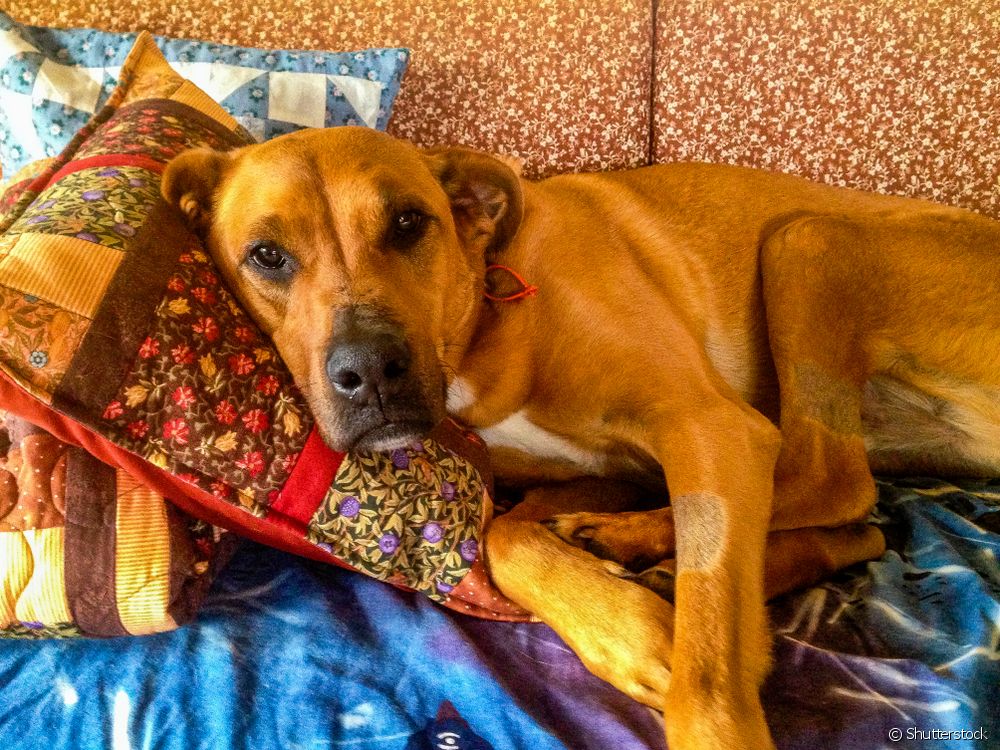Dog changes after castration? Expert explains the main behavioral changes!

Table of contents
Dog castration surgery is one of the most recommended medical procedures by veterinarians, both for males and females. Even though it is directly linked to the animal's reproductive system, the castrated dog usually shows some changes in behavior after the procedure. Because of this, some guardians are often concerned about the animal's adaptation to the new one.To clarify the doubts about what changes or not in the day to day of your friend after he is castrated, we talked to the veterinarian and behaviorist Renata Bloomfield. Take a look!
What changes after female dog castration
For female dogs, in addition to the need to control the birth of puppies (a criterion that is also used to castrate males), dog castration surgery also has another purpose. It serves as a method of preventing pyometra, one of the most serious diseases that can happen to females who have regular heat cycles. Still, the behavioral changes of the postoperative periodcan also influence the final decision. Look what Renata explained: "When we castrate a female, her entire reproductive organ is removed and she no longer produces estrogen, which is the female hormone. As every animal produces testosterone (male hormone), when you have a low estrogen, the testosterone that is already produced begins to "appear" more. That is: the femalestarts to pee with her paw standing up, does not tolerate other dogs because she wants to defend her territory, etc. Therefore, we have some reservations about the castration of females who already have a tendency to aggression".
The final choice will always be the owner's: if the best option is not to castrate, this female will need constant follow-up with the veterinarian so that the possibility of pyometra is monitored. In addition to this disease, castration surgery also affects the dog's body in case of breast cancer. "Tumors can appear whether the female is castrated or not. The difference is that estrogenworks as a fuel for the tumor, that is: one that would take months to grow in a neutered dog, will develop in weeks or days in one that has not undergone the procedure. The neutered female who has the tumor gains time to be diagnosed and treated more calmly ", explained the professional.
Castration of male dogs: changes in their behavior are often milder
Because they are not at risk of acquiring a disease such as pyometra, castration of male dogs is not as "well accepted" as that of females. The maximum that can happen is the enlargement of the prostate of the elderly animal: an issue that is resolved with the surgery of removal of the testicles. Still, when it is done, surgery does interfere with the animal's behavior: "When you castrate the male, itloses interest in the environment, unlike the female, who becomes more territorial. As the testosterone ends up leaving the animal's body completely, it changes its focus from the environment to people and becomes more affectionate and attached to the family and the people who take care of it. As for aggressiveness, the change is individual: if it is a behavior acquired throughout the animal's life, in addition tocastrated, he will need to be trained for the improvement to begin to be seen," Renata said.

After dog castration, it is common for him to be calmer
In addition to the changes specific to each sex of the animal, it is also common to notice a decrease in energy (especially in puppies) after castration. This is mainly because the withdrawal of hormones causes his body to function differently, making his friend a little lazier. That is: in addition to the changes that are directly linked to the sexual area(territory demarcation, instinct to "mount" with other animals, objects and people, escapes in search of females, aggressiveness and others), you may notice a decrease in his energy on a daily basis.
Even so, it is worth mentioning that castration does not solve behavioral issues that the dog already had before surgery. If your pet, for example, has a tendency to jump on you and visitors whenever someone arrives, the management of this situation must be done with training. In many cases, castration helps the process precisely because it makes the animal calmer, but it is not the only way to solve it.a single solution.
Be aware: you can cause the physical and behavioral changes in your pet after castration surgery
In addition to hormonal differences caused by castration surgery, there are also changes that can be caused by the owner. Excessive "pampering" in the postoperative period can be one of the reasons for transformations in the animal's normal behavior. "It is interesting to say that, generally, animals do not feel so much pain after surgery - especially males. So even if you are worried andIt is important not to overvalue this phase emotionally because after he gets well and you return to your normal life, the dog will continue to want your company as he had when he was recovering, "explained the veterinarian.
It is also important to talk about the relationship between castration surgery and the animal's weight gain: many people think that the two things are inseparable, but that's not quite true. Look at what Renata said: "After surgery, the dog stops producing hormones and, therefore, its body needs fewer calories and energy to work. People usually continue to offer the same food.amount of food and do not increase the physical activity of the animal, that is: it ends up getting fat. With diet and exercise this result can be avoided ".
See_also: 5 steps to identify fever in dogs

